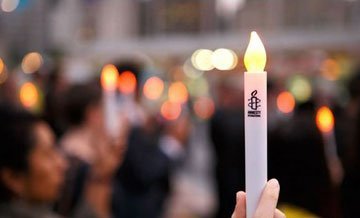Amnesty International Australia is calling on the Australian government to heed the urgent advice of thousands of medical professionals and release detainees held in so-called alternative places of detention (APODs).
“The people being held in places like the Mantra hotel in Preston Victoria, were brought to Australia because they needed urgent medical help. To leave them in a situation where their already fragile health is further imperiled is just cruel,” Amnesty International Australia Refugee Advisor, Dr Graham Thom, said.
Medical experts have advised the government that these people pose no risk at all if they are housed in the community.
Professor David Isaacs, Clinical Professor in Paediatric Infectious Diseases at the University of Sydney, who mobilised 1138 medical professionals to urge the Government to free these men said: “Social distancing measures which are being required of the rest of us simply aren’t possible in APODs where we have evidence of people being crowded in rooms of 20 or more people for extended periods of time”.
“While the response to COVID-19 needs to be speedy and by nature restrict movement, it shouldn’t come at the expense of the most vulnerable people in our community, nor should it be at the expense of Australia’s obligation to upholding basic human rights, like the right to health,” Professor Isaacs said.
Detained for seven years in PNG by the Australian Government and medically evacuated to Australia for urgent respiratory care, Iranian refugee Moz said, “We are detained inside our cramped conditions for 24 hours a day now. There is no space for social distancing. The guards come and go and do not have masks or anything. I am terrified of what will happen in here, and also worried for the health of Australians if this becomes a COVID-19 hotspot”.
Amnesty also has grave concerns for those refugees still trapped in Australia’s offshore detention system in Papua New Guinea and Nauru.
“The refugees in PNG exist in a vacuum where they are unable to work and don’t have access to healthcare. With a healthcare system which would be cripled by COVID-19, we’re hearing reports the refugees there are terrified of what it could mean for them if there was an outbreak.
“While the Australian community comes together in solidarity to confront this pandemic, that support must extend to the refugees in our care,” Dr Thom said.
